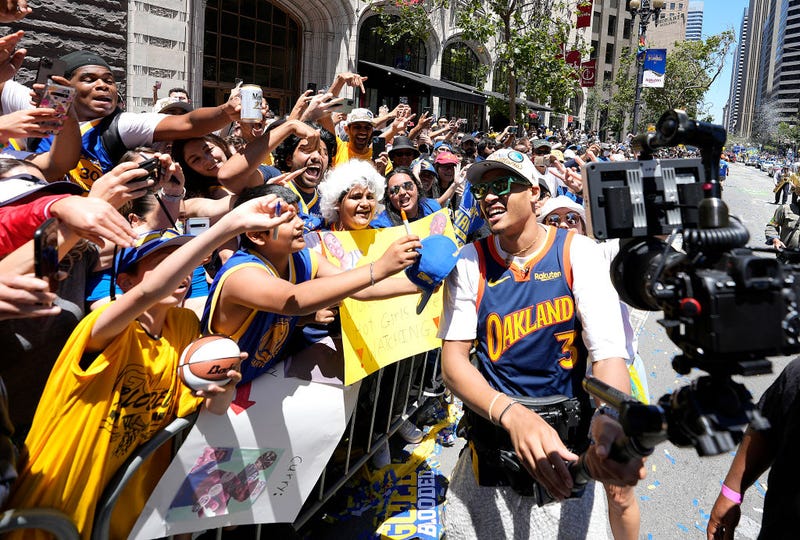
SAN FRANCISCO (KCBS RADIO) – The large public gatherings in recent weeks – from the Pride parade or the Warrior's victory parade – have had some worried about the potential new COVID-19 transmission as the Bay Area continues to grapple with the latest surge.
For more, stream KCBS Radio now.
Even though the most recent surge plateaued, these events may throw a wrench in the number of cases going down.
"We know there's a lot of community spread happening right now, far more than is probably really even being detected," Dr. Abraar Karan, an infectious disease doctor at Stanford University told Melissa Culross and Eric Thomas on KCBS Radio's "Ask an Expert" on Monday.
Test positivity is at 13% right now, and rising, he said. In comparison, during the height of the omicron surge, positivity reached 18%.
And that's likely a lower number than the reality, as at-home tests are not often reported and some people might not be bothering with testing at all at this late stage.
"I do suspect that big events like this certainly are going to cause more spread of the virus," said Karan.
Despite the fact that outdoor settings are generally safer than indoors, in big events like a protest or a parade, where people are close together and a lot of talking and shouting is going on, transmission is a risk.
It would be helpful for people to wear masks in those situations, but without any rules or guidelines requiring people to do so, this could lead to conflict.
"Remember, everyone's situation is very different, some people have immunocompromising conditions, are at high risk, other people have people at home that are, and there are people who just don't want to get infected for a lot of reasons," said Karan.
Caution is still needed, particularly as the likelihood of reinfection continues to go up with new variants emerging.
But right now, rules have relaxed to a point where people are not protecting themselves as well as they may have in the past.
"Our messaging, our policies are not reflective of the fact that we are in an ongoing surge," he said.
Despite the advancements made in the last two years with treatment options, there are still issues remaining – such as people who may not have easy access to medications or may be on medications that could interfere with treatment.
"Those tools are available if we get sick but it doesn't mean that we should allow widespread infection," said Karan.
Looking ahead to July 4th celebrations this coming weekend, people may want to exercise caution.
This includes taking rapid antigen tests the morning before gathering, to ensure that people aren't unknowingly spreading COVID-19 at any gatherings.
DOWNLOAD the Audacy App
SIGN UP and follow KCBS Radio
Facebook | Twitter | Instagram

